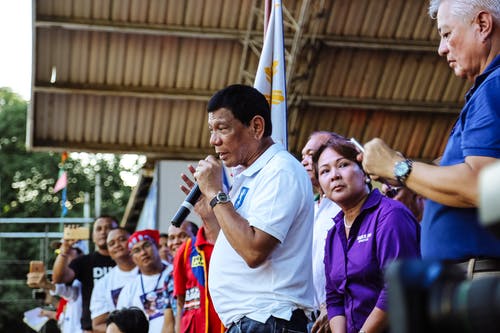Dehumanization and Human Rights: Duterte and Drugs

by Nathan Olsen
“Do the lives of 10 of these criminals really matter…would 100 lives of these idiots mean anything to me?"
- President Rodrigo Duterte
Seventy years on from the Universal Declaration of Human Rights, we can see that some progress has been made when it comes to the promotion and protection of human rights. Yet, authoritarian leaders such as President Rodrigo Duterte of the Philippines still undermine said progress by using one simple tactic: dehumanising groups and individuals who he deems to be less than human. The authoritarian logic dictates that one cannot be in violation of human rights if the subject of repression is somehow less than human. This process of dehumanization is not new – Hitler used the same type of language when denouncing Jews in Nazi Germany – but the fact that such a tactic pervades in the 21st Century is a reality check on the idea that world history is a history of progress.
In contrast to the European fascism of the 20th Century, Duterte’s targeted killings are not focused on a particular ethnic group but rather on what he deems to be the deviants within Philippines’ society: drug dealers and drug users. Upon his election to the presidency in 2016, Duterte launched his ‘War on Drugs’. This phrase had previously been associated with George W. Bush and his anti-drugs policy, yet Bush pales in comparison to Duterte when it comes to the severity and intensity of their strategies. Human rights groups have estimated that Duterte’s anti-drugs campaign has killed between 12,000-20,000 people, with opposition groups in the Philippines suggesting that the number could be even higher. How, we might ask, can this take place in a democratic country? Furthermore, why does the international community allow this to take place?
The answer to the first question is that a majority of the population of the Philippines actually supports Duterte’s draconian stance on drugs. Opinion polls show that up to 89% of the population support The War on Drugs – Duterte has singled out a small portion of the population to detain and murder, but the rest of the population actively supports this discrimination. To answer the second question, we only need to look at the countries who support this policy: The United States, Japan, Singapore, China and Russia. These countries all have authoritarian streaks in their history so perhaps their support for Duterte is unsurprising; yet, this list also contains two superpowers (The United States and China) and two major powers (Russia and Japan). The active support that Duterte’s campaign has received from these states means that taking any action against Duterte is politically impossible. In supporting Duterte, these states lend legitimacy to the idea that people who sell and use drugs are less than human. Something must be done to re-humanize this marginalised population – yet what can we do if the human rights of a few are rescinded by the many and neglected by the powerful?
